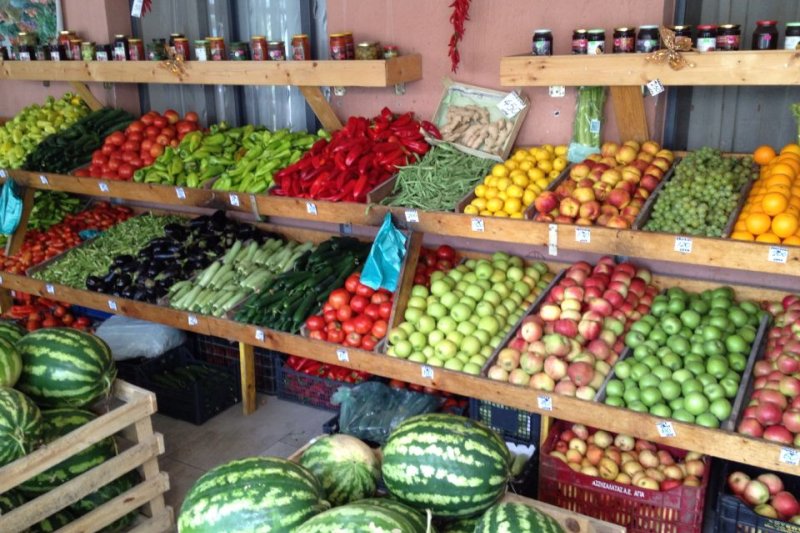Fruit, Vegetable Imports Soar by 63% in Jan-Feb
Imports of fruits and vegetables increased by 63% in the period January-February 2024 compared to the same period a year ago, while the exports of this group are growing at much lower rates.
Official data on foreign trade show that the Albanian economy is significantly increasing its dependence on imports, reflecting the damage created by the devaluation of the euro in the production sector.
These effects have also been extended to the agricultural sector of the country, which is taking steps behind instead of taking advantage of the climate and geographical position that creates conditions for better quality production than its neighbors.
In the first two months of 2023, imports and exports of greens were the same amount, but this ratio was reversed this year, as flows from abroad experienced rapid growth.
The biggest increase was the import of greens, which was 79% higher than in the first two months of 2023, while the import of fruits was 49% higher in the two months of 2024 than in the same period last year.
The increase in imports shows that the demand that is being pushed by tourism is not increasing local production, causing part of the money that tourists leave in our country to go abroad again for the import of food. If the country's economy does not connect the production chains with tourism, the profits that should remain in the country are being returned abroad for the purchase of goods that are needed for domestic consumption.
Trade data shows that all goods related to tourism services have increased significantly this year, as the country prepares for a new record number of visitors, Monitor reported on Monday.
Agriculture could be the biggest beneficiary of tourism if policies are coordinated and financial support for the sector is increased. But this is not happening. Depopulation in rural areas has reduced planting in small plots for self-consumption. The shrinking and aging population of the village, especially in the North and South of the country, has turned into a market consumer.
From observation in the retail markets, more than 80% of the vegetables, fruits, and greens on the stalls are imported. Potatoes and beans come from Egypt and Turkey, vegetables and fruits from Greece, dairy products and cereals from Serbia, Ukraine, North Macedonia, etc.
Food import channels have reawakened and are intensifying, further discouraging farmers and herders from practicing their profession.













